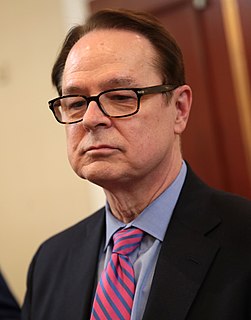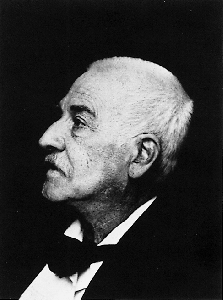A Quote by John Stuart Mill
?A general State education is a mere contrivance for moulding people to be exactly like one another; and as the mould in which it casts them is that which pleases the dominant power in the government, whether this be a monarch, an aristocracy, or a majority of the existing generation; in proportion as it is efficient and successful, it establishes a despotism over the mind, leading by a natural tendency to one over the body.
Related Quotes
Though it is disguised by the illusion that a bureaucracy accountable to a majority of voters, and susceptible to the pressure of organized minorities, is not exercising compulsion, it is evident that the more varied and comprehensive the regulation becomes, the more the state becomes a despotic power as against the individual. For the fragment of control over the government which he exercises through his vote is in no effective sense proportionate to the authority exercised over him by the government.
I believe each individual is naturally entitled to do as he pleases with himself and the fruit of his labor, so far as it in no wise interferes with any other mans rightsthat each community, as a State, has a right to do exactly as it pleases with all the concerns within that State that interfere with the right of no other State, and that the general government, upon principle, has no right to interfere with anything other than that general class of things that does concern the whole.
We should distinguish at this point between "government" and "state" ... A government is the consensual organization by which we adjudicate disputes, defend our rights, and provide for certain common needs ... A state on the other hand, is a coercive organization asserting or enjoying a monopoly over the use of physical force in some geographic area and exercising power over its subjects.
The acts of the mind, wherein it exerts its power over simple ideas, are chiefly these three: 1. Combining several simple ideas into one compound one, and thus all complex ideas are made. 2. The second is bringing two ideas, whether simple or complex, together, and setting them by one another so as to take a view of them at once, without uniting them into one, by which it gets all its ideas of relations. 3. The third is separating them from all other ideas that accompany them in their real existence: this is called abstraction, and thus all its general ideas are made.
It depends on the consent of the people to decide whether kings or consuls or other magistrates are to be established in authority over them, and if there is legitimate cause, the people can change a kingdom into an aristocracy, or an aristocracy into a democracy, and vice versa, as we read was done in Rome.
The natural aristocracy I consider as the most precious gift of nature for the instruction, the trusts, and government of society. And indeed it would have been inconsistent in creation to have formed man for the social state, and not to have provided virtue and wisdom enough to manage the concerns of the society. May we not even say that that form of government is the best which provides the most - for a pure selection of these natural aristoi into the offices of government?
Man is distinguished from the brute animals in proportion as thought prevails over sense: but in the healthy processes of the mind, a balance is constantly maintained between the impressions from outward objects and the inward operations of the intellect:--for if there be an overbalance in the contemplative faculty, man thereby becomes the creature of mere meditation, and loses his natural power of action.
Some people draw a comforting distinction between force and violence. I refuse to cloud the issue by such word-play. The power which establishes a state is violence; the power which maintains it is violence; the power which eventually overthrows it is violence. Call an elephant a rabbit only if it gives you comfort to feel that you are about to be trampled to death by a rabbit.
The power which a multiple millionaire, who may be my neighbor and perhaps my employer, has over me is very much less than that which the smallest "functionaire" possesses who wields the coercive power of the state, and on whose desecration it depends whether and how I am allowed to live or to work.
No matter whether one is flying over Newfoundland or the sea of lights that stretches from Boston to Philadelphia after nightfall, over the Arabian deserts which gleam like mother-of-pearl, over the Ruhr or the city of Frankfurt, it is as though there were no people, only the things they have made and in which they are hiding.
The seventeenth century is everywhere a time in which the state's power over everything individual increases, whether that power be in absolutist hands or may be considered the result of a contract, etc. People begin to dispute the sacred right of the individual ruler or authority without being aware that at the same time they are playing into the hands of a colossal state power.








































